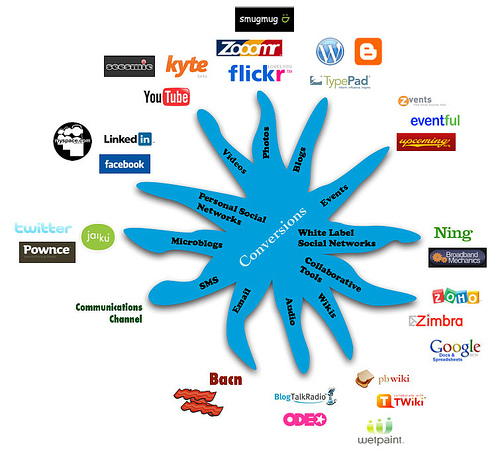Out of work? That doesn’t mean you’re also out of opportunities. Any single one of the ten methods below will help you stay marketable. If you try all ten suggestions, you’ll dramatically increase your odds of landing a new job, client, or key relationship:
1. Take a class

Classes help you build new skills, meet people, and expand your marketable offerings. Day classes or workshops can cost as little as $25. Find classes at your local Chamber of Commerce, professional organization, or community college. Be sure to network while you’re there! If you’re considering a career change, low-cost classes are also a great way to find gauge your aptitude in your field of interest.
2. Join an interest group

Try to make it an in-person, rather than online, interest group. Meeting people face-to-face is still the best way to network. Career- or industry-themed groups will help you network and learn new tricks. Non-career-themed groups will also help you meet people who could guide you to a new job.
Meetup.com has an extensive selection of themed meetups around the country. Social media outlets like Facebook and LinkedIn also host local groups. You can also look up local branches of national organizations, or try your local Chamber of Commerce.
3. Volunteer

Volunteer or do a pro bono project for your favorite nonprofit. Stretch yourself, do a good job, meet people, and boost your resume. Bonus: Help people while you’re at it. It’s win-win-win.
4. Attend a conference

Image: RRMTF
Conferences stoke your creativity and provide excellent networking opportunities. You’ll meet major players in your field, learn about new innovations, and get a roundup of new opportunities. Conferences can be pricey. Consider it an investment–if you work the conference right, you’ll come out with invaluable new contacts and opportunities. If you have your own business, a conference also makes fantastic tax write-off.
5. Use social media

Image: WebGuild
If you don’t already have a LinkedIn account, create one! Link up with friends and groups, then join industry-specific groups to learn more about happenings in your industry. Contribute to discussions so that people get to know you.
Try Twitter out. Send quality tweets. Build a network based on solid, interesting content. Follow people you admire. If give Twitter a fair try and still hate it, leave. At least you tried.
Set up a blog. Write quality content. Comment on other peoples’ blog posts. Follow bloggers you like. Build a network. Try it out–it might just go somewhere.
Join Facebook. Put positive content in your profile and on your Wall. Facebook, like any social media vehicle, can either be a tool or a time-waster. Harness it for your own good.
6. Join a job search group

Job-Hunt.org has a killer resource on societies, associations, and organizations that support job hunters. Social media outlets like Facebook and LinkedIn also host job search groups. Independent job search groups have also been cropping up around the country. Look for them on Craigslist or your local Chamber of Commerce. Ask around–your neighbor could be hosting one.

Knowing a language opens you up to all kinds of new work possibilities. For example, knowing another langauge will give you an edge in most multinational corporations. If you get good at your language of choice, you can offer translation or interpretation services. You can even go work in your country of choice.
8. Consult
Have you built up a strong area of expertise over your career? Harness it for the benefit of others. Start by defining where and how you can help people. Set a price. Then email everyone in your network. Tell them what you’re doing. Ask if they know someone who could use your help. Once you start getting responses, business is just a few steps away.
(Entrepreneur Magazine has a great article on starting a consulting business.)
9. Set up a business

Even if your business only picks up occasional work at the beginning, having a legal entity in place will open you up to valuable tax write-offs. Do the paperwork (it’s easy). Devise a business plan and strategy, but don’t worry if it doesn’t immediately take off. You have about three years to be unprofitable before the IRS starts asking questions.
Note: I don’t want to encourage anyone to set up a business purely for tax reasons. I do, however, think it pays off to set up a legal entity even if you don’t yet have all your ducks in a row. Use those tax advantages sooner rather than later.
10. Teach a class

If you know a subject well, tell other people about it by teaching a class or workshop. You can market yourself, your services, and/or your business through the workshop. Contact your local community college. Research how much you have to charge if you rent a space yourself and market the workshop. Speak at a conference or tradeshow. Teach through your local Chamber of Commerce. Where there’s a venue, there is a way.
Remember, opportunities are out there. It’s up to you to take advantage of them.

